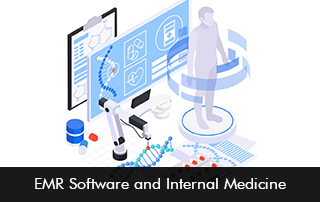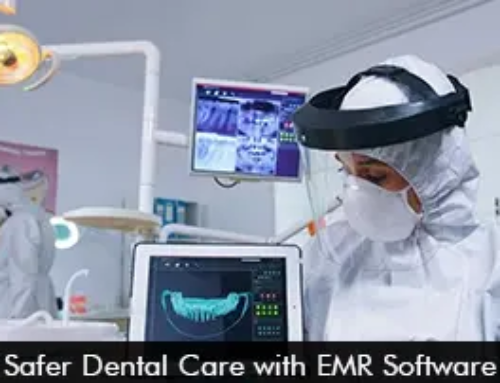Healthcare technology solutions like Electronic Medical Records (EMR) Software have paved the way for modern healthcare delivery. This is also true with internal medicine. Internal medical specialists, also known as internists, are trained to diagnose and treat diseases in adults. With the help of Internal Medicine EMR Software, internists are empowered to offer comprehensive patient care with the availability of patient data and streamline workflows so they can focus solely on patient treatment.
Key Functionalities in an Internal Medicine EHR Software
- Customizable Templates – The EMR System’s built-in templates for internal medicine, including chronic diseases, cardiovascular conditions, infectious diseases, and neurological disorders, help with swift and accurate clinical documentation.
- Integration with Diagnostic Tools – for supreme efficiency, the Internal Medicine EHR Software can smoothly integrate with labs, radiology, vaccine registries and other equipment.
- Telemedicine Software Functionality – To offer remote care solutions, internal medicine providers can offer uninterrupted and fast care to patients through HIPAA-compliant telemedicine sessions. This is a great way to follow-up with patients having chronic conditions.
- Interoperability – Robust interoperability options in the EMR Software can support the seamless sharing of patient data. Interoperability enables providers to coordinate care and bridge any gaps in care.
How Internal Medical Practices can use EMR Software?
Internal medicine doctors handle long-term health issues and complex conditions affecting multiple body systems, which means they need thorough patient backgrounds. With Electronic Medical Record (EMR) Software, they can effortlessly record each patient visit, their medication lists, any allergies, and past therapies.
A lot of Internal Medicine EHR Software have built-in decision-making aids. These offer warnings about potential drug side effects, suggestions based on medical guidelines, and help with diagnoses. This empowers internists to make well-informed choices for their patients’ care.
Since internal medicine providers manage conditions such as diabetes, high blood pressure, and heart disease, EMR software is equipped with specific tools for managing these diseases. These tools help monitor how a patient is doing, keep tabs on lab tests, and ensure patients are taking their medications as prescribed.
Moving Ahead
Internists have a great responsibility as they have to manage severe long-term conditions with compassion. The Internal Medicine EHR Software can be leveraged to streamline complex tasks and provide evidence-based guidelines that can help with high-quality patient care.








